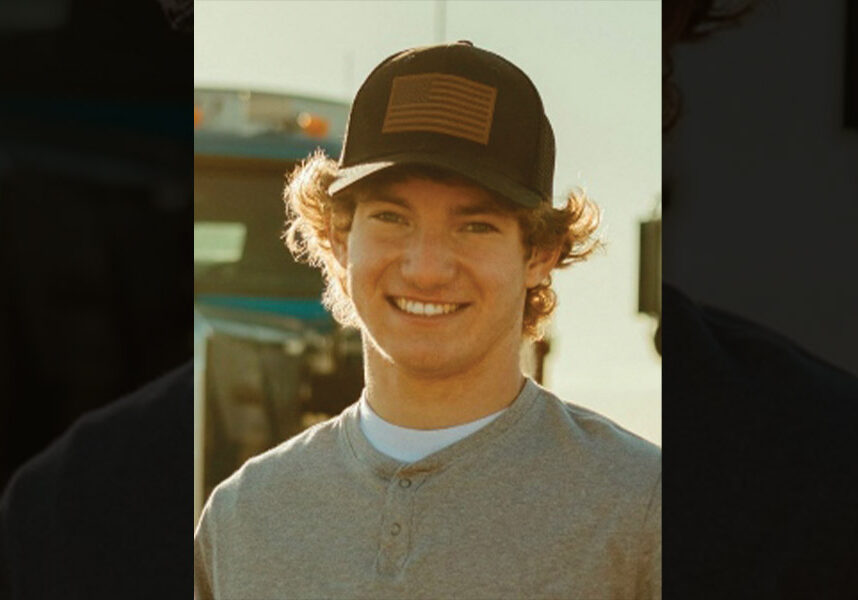
I am the sixth generation to raise wheat here on Nonnemacher Farms in Davenport. At about 6 years old, I started breeding, raising and selling pigs. During harvest, I got paid for washing combine windows. My father paid me in wheat, and I had to learn to observe the market to know when to sell it. I also kept some grain and ground it with an old feed grinder, fed it to my pigs, then sold them at a profit. By learning to take what I earned and make the most of it, I turned a small wage into a profit by using my available resources to the best of my abilities. I also had to talk with my customers, negotiating prices and terms. I developed lasting relationships, creating trust and mutual respect from fellow farmers and customers.
I am grateful for my upbringing in the agricultural and wheat industry, as it has helped form my friendships, my work ethic and my understanding of economics. I am also grateful for the wholesome environment in which I was raised, learning that God, family and neighbors are what matters most in this world.
I plan to attend Washington State University to study agronomy. I will pay for college using that same money that I saved all these years from raising pigs, washing combine windows and working harvest. After college I’d like to stay local, either as an agricultural salesman or as a chemical sales representative. This will give me a chance to tour many local farms and visit with farmers, allowing me to continue to increase my knowledge throughout my entire career. There is no better way to stay relevant and informed than to listen to those who have feet on the ground, doing the work every day. I hope to continue old friendships and develop new connections throughout the agricultural community and give back and help those that have given so much to me.
Going forward, I want to make sure that my generation continues to appreciate the importance of agriculture. They should know how food gets on their table, and how current events affect agricultural economics. My generation will face many unique challenges. The growing demonization of diesel and farm chemicals, increasing input costs and the current, out-of-touch administration will all be barriers to my generation continuing the family farm. This is one reason that I would like to return to work in my local community. I will continue to emphasize the necessity of the farming process and fight for farmers’ rights.
In December, I attended the Tri-State Grain Growers Convention and delivered a presentation on the rising costs of inputs in agriculture. I listened to the farmers about their perspective, discussing what they feel the challenges are on their farms. Then I traveled to Olympia with the Washington Association of Wheat Growers to attend meetings with our legislators to lobby for the wheat industry. We discussed problems that the local farmers have talked to me about. The costs of agricultural inputs, such as fuel, fertilizer and spray, are rising dramatically. Half the state is in a drought.
Corporate farms are taking over family farms, which distorts markets and leaves farmers and ranchers vulnerable to abuse and unfair practices. Because farmers rely on both buyers and sellers for their business, concentrated markets squeeze them at both ends.
I was also able to discuss upcoming bills that would affect farmers and ranchers. I discovered that a lot of politicians in Olympia realize the importance of agriculture. They know that agriculture is very important to our way of life here in Washington state, and they are willing to fight to protect it. However, some were oblivious as to how farms actually operate. When discussing the overtime bill, I heard someone say that the bill wasn’t targeting the farmers, it was targeting the people that actually work on the farm. What? What do they think farmers do? It really demonstrated that some of the people in charge of deciding how we farm have no clue how it’s done.
After our visit to the Capitol, I hope that legislators see that there is a next generation coming up that cares deeply about the heart of agriculture.
Becoming a Washington Wheat Ambassador has created a desire in me to protect the future of agriculture by promoting the family farm and realizing that we all have a voice if we choose to use it. Throughout this experience, I learned that sometimes you need to travel across the state to benefit your community at home. I realized that I am not only capable of influencing change, but I can be persuasive and successful at it. I hope that I can continue to make a difference and positively impact future generations of farmers.












